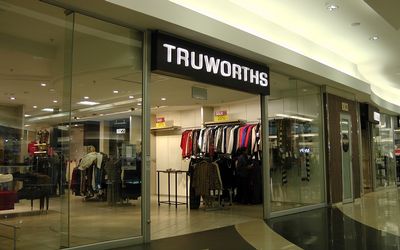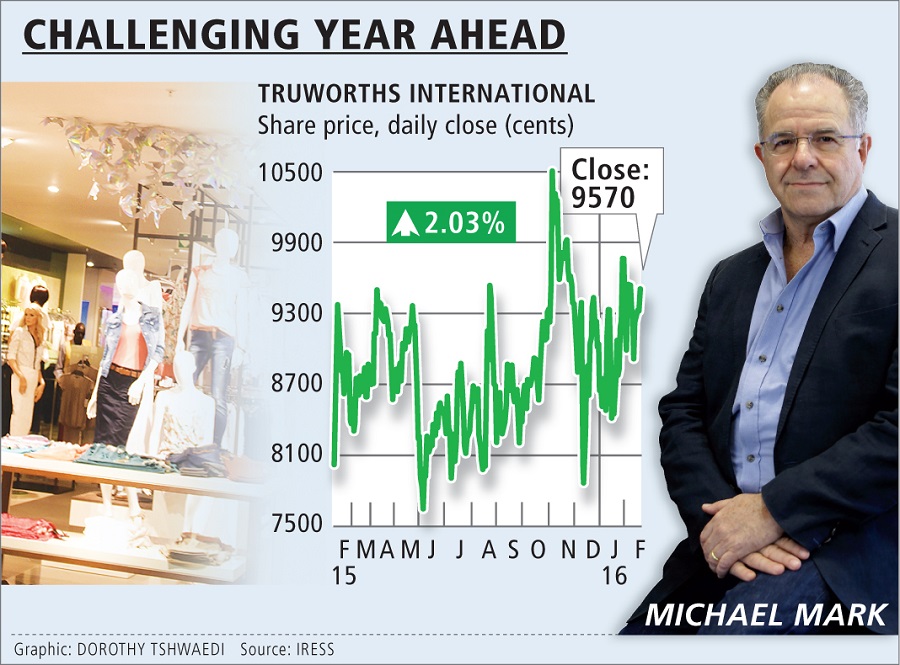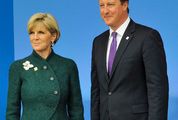Truworths makes smart moves to beat downturn
by Zeenat Moorad,
2016-02-19 05:59:10.0
TRUWORTHS defied SA’s retail sector malaise, reporting strong first-half figures on Thursday.
The fashion retailer posted a 21% rise in diluted headline earnings per share to 403.8c for the 26 weeks ended December 27, driven by a recovery in its flagship Truworths stores, as well as its recent buyout of UK footwear group Office.
Economists this week warned that the pace of growth in retail sales would slow significantly as the year progressed.
Sales, excluding the group’s spate of acquisitions rose 15% to R7.2bn. Comparable store sales for the period increased 10.2%, with inflation of 9%.
As well as Office, Truworths bought the local Earthchild and Naartjie businesses.
Excluding the effect of Office, diluted headline earnings per share were up 16%.
An interim dividend of 270c per share was proposed, up 14%. Truworths offered shareholders a scrip dividend option.
The core Truworths chain has in recent years been criticised for a series of "fashion misses", amid fiercer competition from rivals such as Woolworths, Cotton On and Zara.
Avior Capital Markets analyst Kyle Rollinson said the performance was "decent" and the group had done well to drive credit on the back of new regulations.
Late last year Truworths started implementing the National Credit Regulator’s new affordability assessments.
The effect has been a reduction in the new account acceptance rate from 32% in the prior period to 29%. About 71% of its sales are on credit.
The group has pushed promotions and discounts to drive traffic, offering vouchers when customers open accounts.
"In the previous period they were struggling with the fashion; they have rectified that. I don’t think they have done much on the pricing, it’s pretty much in line," Mr Rollinson said.
Truworths has been under fire for its narrow pricing architecture, which excludes options for customers wanting slightly cheaper merchandise. The group’s gross margin decreased to 54.2% from 55.3%.
CEO Michael Mark expected the environment to remain challenging as consumers come under pressure from rising inflation, slow economic growth and interest rate increases.
The six weeks of trading since its interim period-end look good, however, with sales up 13.1%, excluding acquisitions.
The group has exited Nigeria due to import restrictions. The Nigerian central bank imposed foreign exchange restrictions in June last year to stem an outflow of dollars, causing delays of merchandise imports.
Truworths expanded into Nigeria to tap into a burgeoning middle class, but economic growth has slowed as a result of lower oil prices, eroding consumer spending. Truworths had four stores in Nigeria.

Picture: MICHAEL ETTERSHANK
TRUWORTHS defied SA’s retail sector malaise, reporting strong first-half figures on Thursday.
The fashion retailer posted a 21% rise in diluted headline earnings per share to 403.8c for the 26 weeks ended December 27, driven by a recovery in its flagship Truworths stores, as well as its recent buyout of UK footwear group Office.
Economists this week warned that the pace of growth in retail sales would slow significantly as the year progressed.
Sales, excluding the group’s spate of acquisitions rose 15% to R7.2bn. Comparable store sales for the period increased 10.2%, with inflation of 9%.
As well as Office, Truworths bought the local Earthchild and Naartjie businesses.
Excluding the effect of Office, diluted headline earnings per share were up 16%.
An interim dividend of 270c per share was proposed, up 14%. Truworths offered shareholders a scrip dividend option.
The core Truworths chain has in recent years been criticised for a series of "fashion misses", amid fiercer competition from rivals such as Woolworths, Cotton On and Zara.
Avior Capital Markets analyst Kyle Rollinson said the performance was "decent" and the group had done well to drive credit on the back of new regulations.
Late last year Truworths started implementing the National Credit Regulator’s new affordability assessments.
The effect has been a reduction in the new account acceptance rate from 32% in the prior period to 29%. About 71% of its sales are on credit.
The group has pushed promotions and discounts to drive traffic, offering vouchers when customers open accounts.
"In the previous period they were struggling with the fashion; they have rectified that. I don’t think they have done much on the pricing, it’s pretty much in line," Mr Rollinson said.
Truworths has been under fire for its narrow pricing architecture, which excludes options for customers wanting slightly cheaper merchandise. The group’s gross margin decreased to 54.2% from 55.3%.
CEO Michael Mark expected the environment to remain challenging as consumers come under pressure from rising inflation, slow economic growth and interest rate increases.
The six weeks of trading since its interim period-end look good, however, with sales up 13.1%, excluding acquisitions.
The group has exited Nigeria due to import restrictions. The Nigerian central bank imposed foreign exchange restrictions in June last year to stem an outflow of dollars, causing delays of merchandise imports.
Truworths expanded into Nigeria to tap into a burgeoning middle class, but economic growth has slowed as a result of lower oil prices, eroding consumer spending. Truworths had four stores in Nigeria.






















Change: -0.07%
Change: -0.13%
Change: -1.59%
Change: 0.00%
Change: 1.05%
Data supplied by Profile Data
Change: -0.40%
Change: -0.98%
Change: -0.07%
Change: 0.00%
Change: -1.20%
Data supplied by Profile Data
Change: -0.83%
Change: -0.78%
Change: -0.94%
Change: -1.21%
Change: 0.11%
Data supplied by Profile Data
Change: -0.31%
Change: 0.21%
Change: -0.20%
Change: 0.56%
Change: 0.58%
Data supplied by Profile Data